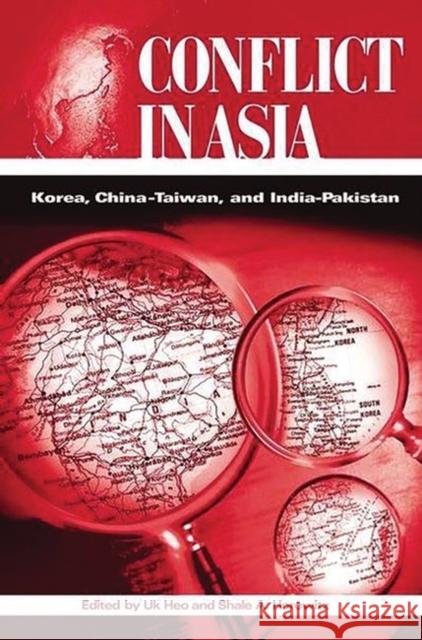Conflict in Asia: Korea, China-Taiwan, and India-Pakistan » książka
Conflict in Asia: Korea, China-Taiwan, and India-Pakistan
ISBN-13: 9780275977795 / Angielski / Twarda / 2003 / 200 str.
Conflict in Asia: Korea, China-Taiwan, and India-Pakistan
ISBN-13: 9780275977795 / Angielski / Twarda / 2003 / 200 str.
(netto: 366,00 VAT: 5%)
Najniższa cena z 30 dni: 356,48
ok. 30 dni roboczych.
Darmowa dostawa!
Much of the world reaped a peace dividend with the end of the Cold War, yet Asia has seen little reduction in tensions and military spending. Three Cold War era conflicts-those dividing China and Taiwan, North and South Korea, and India and Pakistan-remain unresolved. Other regional powers, as well as the United States, continue to be concerned about these volatile disputes. North Korea's nuclear and long-range missile development, China's opposition to Taiwan's pursuit of independence, and Pakistan's longstanding dispute with India have all received increasing media attention. This is the first volume using a common approach to examine post-Cold War changes in these three volatile dyads.
The book's case studies detail the evolution of each country's security policy and its shifting mix of alliances. The authors analyze U.S. interests and discuss how U.S. intervention affects strategic calculations of the conflicted states. This mechanism allows gives the readers a truer understanding of the conflicts and how they interact within the Asian security system in general. Each of the dominant theoretical frameworks of international relations-neo-realism, neo-liberalism, and constructivism-offer crucial insights into this complicated situation.











